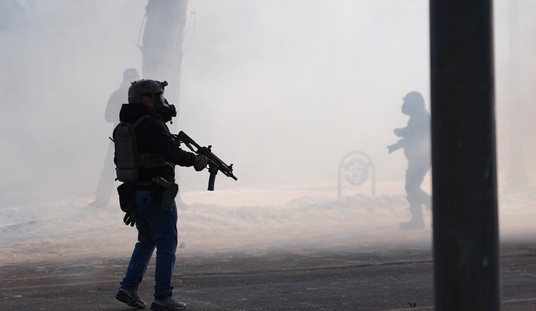This morning’s Gospel reading is Matthew 28:16–20:
The eleven disciples went to Galilee, to the mountain to which Jesus had ordered them. When they all saw him, they worshiped, but they doubted. Then Jesus approached and said to them, “All power in heaven and on earth has been given to me. Go, therefore, and make disciples of all nations, baptizing them in the name of the Father, and of the Son, and of the Holy Spirit, teaching them to observe all that I have commanded you. And behold, I am with you always, until the end of the age.”
This weekend we’re doing a bit of traveling to visit friends and see a few sights here in the upper Midwest. It’s an unusual return to reality pre-pandemic. In a sense, it feels a bit like being delivered from a plague, which is where our readings start today at Mass.
In the first reading from Deuteronomy, Moses lectures the Israelites about recognizing just who did the delivering. He challenges them to explain when they have ever heard of any petty god plucking an entire nation out of another, and leading them to victory over their oppressors. This should prove to them, Moses argued, that there was only one God, whose power and authority should not be questioned, and whose love had gone to the not-always-worthy Israelites. If they did and remained true to the Lord, they would live happy lives in the land He wanted to bestow on them forever.
The Israelites had been delivered from the plague of slavery and sent out to seek that Promised Land. Their disobedience and exaltation of an idol prompted the Lord to forge Israel out of newer generation by setting them to wander in the desert for forty years. The Lord fulfilled His promise, but unfortunately Israel and later its two successive kingdoms would fail to heed Moses’ warning. Rather than remain on the path of righteousness by creating Israel as a nation of priests and prophets to convert all the nations of the world to the Word of the Lord, the Israelites chose to become another kingdom in that world, more concerned with temporal power than divine authority.
As that process continued, Israel and later Judah suffered the fates of nations who play that game and lose. As our responsorial psalm today tells us, “Blessed the people the Lord has chosen to be his own,” but the Lord allows those peoples to choose whether to embrace Him and His mission.
Thus we come to today’s Gospel reading, the Great Commission in which Christ sends His apostles out into the world to convert it. This is both a parallel to and a reversal of the formation of Israel described by Moses. It is again the calling of a seed of a “nation,” in this case a church, out of another nation, and again with the mission of conversion. This time, however, that “nation” will not have a Promised Land, but instead transform all of the world through the Word.
And here we have the same choice, as both individuals and a church, as the Israelites faced repeatedly in the Old Testament. Do we work on that Great Commission of conversion and salvation, or do we work to improve our worldly standing and power instead? Do we trust in the Lord and accept the Holy Spirit, or resist that in the cares and concerns of the material? Paul answers this in his missive to the Romans:
Those who are led by the Spirit of God are sons of God. For you did not receive a spirit of slavery to fall back into fear, but you received a Spirit of adoption, through whom we cry, “Abba, Father!” The Spirit himself bears witness with our spirit that we are children of God, and if children, then heirs, heirs of God and joint heirs with Christ, if only we suffer with him so that we may also be glorified with him.
God has freed us from slavery to the worldly, and Christ calls us to work on his Commission to send that message to all the ends of the earth. Only in embracing that can we ourselves be delivered from the death and decay of this world into the true Promised Land to come.
The front-page image is a detail from “The Ascension of Christ” by Pietro Perugino, c. 1495-98, on display at the Musée des Beaux-Arts de Lyon, Lyon, France. Via WikiArt.
“Sunday Reflection” is a regular feature, looking at the specific readings used in today’s Mass in Catholic parishes around the world. The reflection represents only my own point of view, intended to help prepare myself for the Lord’s day and perhaps spark a meaningful discussion. Previous Sunday Reflections from the main page can be found here.








Join the conversation as a VIP Member